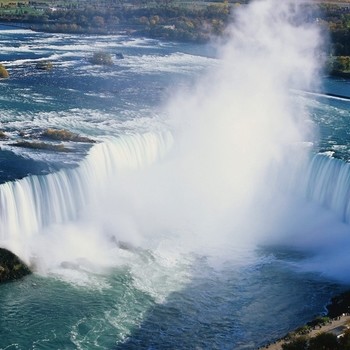Why do only the surface of lakes freeze?
1 Answer
Oct 10, 2016
Ice is less dense than water, so it doesn't sink to the bottom of the lake.
Explanation:
In order for water to freeze, it must reach a temperature of
Warm water is denser, so it sinks to the bottom, This effectively separates lakes into cold water, at the top, and warm water at the bottom:

Since the water below the ice on top of the lake never reaches

